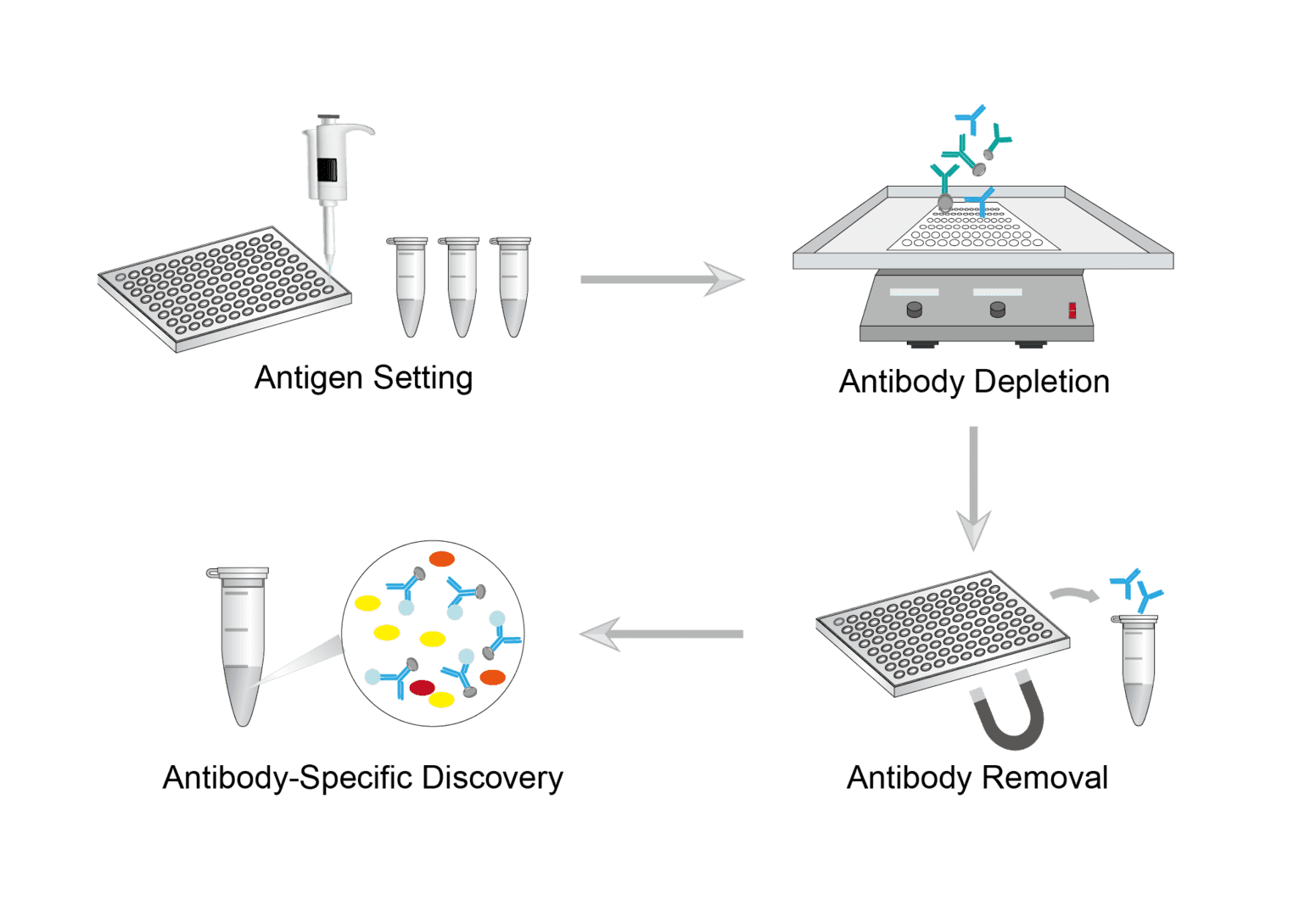Antibody Depletion Assay Protocol & Troubleshooting
Determining the specific target of an antibody is important for applying its immunological properties to develop or evaluate immunotherapies. We need various methods to know which surface antigens are the targets of the antibodies present in the sample. Antibody depletion assays can be a useful tool to study antibody specificity.
For antibody specificity studies, Creative Biolabs provides specific protocols for antibody depletion assays, including general procedures for researchers to follow and design their own experiments.
Solutions and Reagents
| Stages | Solutions and Reagents |
| Antigen Setting | Known antigens, dilution buffer, blocking buffer |
| Antibody Depletion | Magnetic beads, washing buffer, elution buffer |
Antibody Depletion Assay Procedure
The presence of various antibodies in varying abundance in a number of serum samples. Removing some of the interfering species by antibody depletion will help us to improve the detection of the desired antibodies.

Prepare serial dilutions of known antigens in 96-well plates using buffer solutions. Keep an equal volume in each well after dilution and set up an antigen-free control. Add the blocking solution and incubate with shaking.
Add an equal amount of serum sample and incubate overnight with shaking. The interfering antibody will bind to the specific antigen. Then add magnetic beads for incubation. An antigen-antibody-magnetic bead complex is formed.
Add a magnetic field to separate the complex from the unbound antibody. The unbound fraction recovered is the depleted serum sample.
Incubate the depleted serum sample with an antigen library containing multiple antigens. Again, separate the antigen-antibody complexes by magnetic beads. Then isolate the antigens to verify specificity.
Troubleshooting
Poor antibody specificity
- Antigen setting causes. When your depleted sample still does not show good specificity, it is possible that the antigen setting is not rich enough. You have not selected the right antigen that can deplete the high titer of antibodies in the sample. Therefore, there are still multiple types of antibodies in the depleted sample resulting in a lack of specificity. We recommend that you select multiple antigens targeted by high titer antibodies contained in the sample for antibody depletion.
- Serum sample concentration causes. We recommend performing an antibody titer test in advance to select the appropriate concentration to incubate with the antigen. Too high or too low concentrations can cause poor results.
- Incubation time causes. You can set up a pre-experiment to study the incubation time of the serum with the antigen. Compare and choose the best incubation time to deplete the antibody as much as possible.
- Buffer solution causes. Check and make sure that the buffer solution is appropriate, and that the wash time is adequate and not excessive.
- Washing and elution causes. You may do not perform the cleaning and elution process carefully. This may result in depleted antibodies and unbound antibodies not being well separated.
To enhance the discovery of antibody specificity in serum, antibody depletion is an excellent method. We can enhance the discovery of antibody specificity by removing the interfering antibody species with magnetic selection. If you have specific requirements for the application of an antibody depletion assay, contact us for communication and custom protocols.
For research use only. Not intended for any clinical use.
This site is protected by reCAPTCHA and the Google Privacy Policy and Terms of Service apply.

